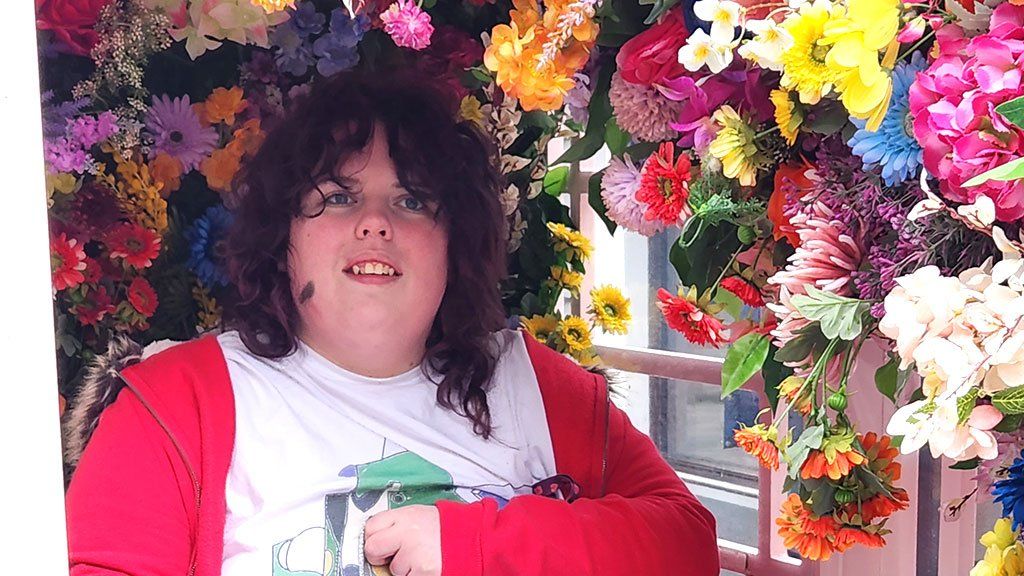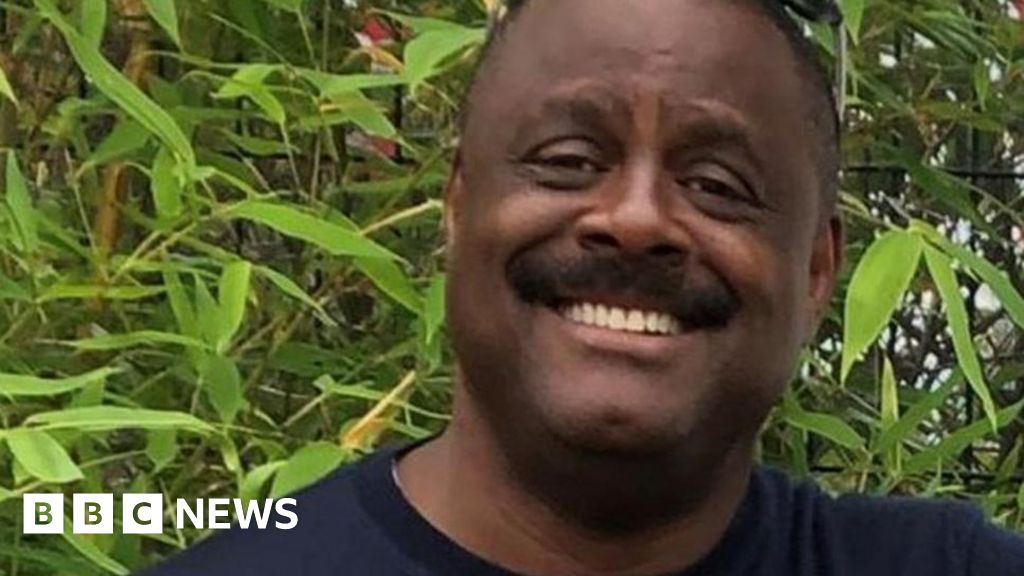ARTICLE AD BOX
 Image source, Family handout
Image source, Family handout
Alex was a patient at Whorlton Hall at the time of the BBC Panorama investigation
By Alison Holt
BBC social affairs editor
The conviction of four care workers for mistreating patients at a specialist hospital in County Durham has once again underlined the vulnerability of people with learning disabilities and autism in such places. The government describes the abuse as a "terrible set of events that should never have happened". There have been many official promises of better, more appropriate services. Despite that, change remains slow.
The court case was the result of a 2019 undercover Panorama investigation into Whorlton Hall. It showed staff mocking and taunting patients. I remember tears running down my cheeks as I watched the secretly filmed footage. It reminded me of a similar investigation, also by Panorama and nearly a decade earlier, that exposed the abuse of patients at another specialist hospital, Winterbourne View, near Bristol.
That 2011 investigation caused a national outcry. It exposed an outdated system of specialist hospitals, known as assessment and treatment units. Patients were only meant to be there for a few weeks, but many remained for years.
Many experts viewed them as "not fit for purpose" - as the charity Mencap puts it, learning disabilities and autism are not conditions that can be "treated".
The government pledged that care and support for people with learning disabilities and autism would improve.
But the mistreatment of patients at Whorlton Hall shows how little has changed for this group of people. The question is why?
Alex's story
"She loved this day out."
Tony is scrolling through the photos on his phone, pointing to one of his daughters, Alex, posing in a phone box decked in artificial flowers.
It was the perfect place for an "Insta-moment", and 25-year-old Alex, who is severely autistic, was clearly loving everything about the recent trip to a shopping centre with her family.
Image source, Family handout
Image caption,Alex enjoying a day out with her family
Alex now lives in her own bungalow, with two support workers on hand to help. The contrast couldn't be greater to the life she was leading four years ago, when she was at Whorlton Hall.
There, the BBC Panorama investigation into the 17-bed unit near Barnard Castle exposed how she and some other patients were taunted and mocked.
"The more I saw it [the undercover footage], the more angry I got," says Tony. "You just don't treat people like that, you know, even if it's a difficult job. You still treat people as human beings."
Alex was sent to Whorlton Hall because there was no suitable community support available for her - from both the NHS and local council - when her behaviour became more challenging.
It meant her family had to make a 350-mile (563km) round trip from their home in the Midlands to see her each week. The distance made it more difficult for them to keep checks on what life was like at Whorlton Hall.
I have heard many stories from the families of people with learning disabilities and autism about this failure in the provision of local services.
The secret BBC filming showed how staff reacted when Alex became increasingly upset.
Her family says the hospital team knew she was frightened of men. But, as Alex got more distressed, two senior care workers, Peter Bennett and Matthew Banner, arrived in response to a request for additional help.
They needed to de-escalate the situation, yet Bennett threatened to send the female staff away. A short time later, the two women were told to go. Alex's screams could be heard at the other end of the corridor.
Bennett boasted to the BBC's undercover reporter about inventing what he called the "man button".
The secret filming showed it in action during another incident. Banner was seen sitting outside Alex's room threatening to call "five more men, six more men", unless she calmed down.
Image source, CPS/BBC
Image caption,Peter Bennett and Matthew Banner were both senior care workers
The two men were found guilty of ill-treating patients at Teesside Crown Court on Thursday. Care workers Ryan Fuller and John Sanderson were also handed guilty verdicts - Fuller for mocking patients and Sanderson for repeatedly unplugging a patient's phone. They will all be sentenced in July. Five other care workers were cleared of all charges.
The hospital was privately-owned and publicly-funded. A new company took over its running shortly before the Panorama investigation.
In the wake of the programme, an inspection by the regulator, the Care Quality Commission, concluded that services at Whorlton Hall were inadequate.
NHS England says standards fell well below what it expected and immediately took action to close the unit, "with patients moved to other facilities".
Broken promises
Watching the Whorlton Hall footage, it felt like I was seeing history repeating itself.
Although the abuse was different from that secretly filmed at Winterbourne View, the vulnerability, isolation and distress of the people being targeted was the same.
That 2011 BBC investigation exposed a toxic culture at the specialist hospital, north of Bristol. Staff were shown bullying, taunting and restraining patients in a way that, a court was later told, had inflicted pain and humiliation.
Eleven care workers admitted neglecting and abusing patients. Six of them were given jail sentences. The home was also closed.
And, in response to the public outrage, the then coalition government promised fundamental change. It said the inappropriate placement of people with learning disabilities and autism in such long-stay hospitals would stop by 2014.
That didn't happen. This relatively small group of people with complex needs were meant to be supported in the community instead, but often the help wasn't available.
Since then, there have been at least 26 different official reports - either detailing problems found in a range of institutions, or setting out plans for change.
A decade ago, there were an estimated 3,400 people with learning disabilities and autism in long-stay hospitals in England.
Today, despite the promises, there are still more than 2,000 people living in these assessment and treatment units.
NHS England has set a deadline of March next year to reduce those numbers by 50%. The learning disability charity Mencap estimates it will be another missed target.
Jackie O'Sullivan, the charity's director of communications, advocacy and activism, says the system is broken.
"We shouldn't be in a situation where, 12 years after Winterbourne View, this is still happening. Most of the people who were in Whorlton Hall shouldn't have been there in the first place."
It can cost several hundred thousand pounds a year to support someone with the highest needs. In the community, it is often financially-squeezed councils - rather than the NHS - who pick up the bill.
Mencap believes that while patients are still being sent to specialist hospitals, the money remains "locked up in NHS budgets", which makes it more difficult for local authorities to fund new community support. They describe it as a system of "perverse incentives".
Previously, NHS England and local authorities have said they are working together to transform services. This includes through new integrated care boards (ICBs) which help them set joint priorities for services and spending in an area.
The government has also said it is putting millions of pounds more into adult social care in England and reforming the care system as a whole.
And there are some fundamental problems which need fixing. The key one is staffing.
Whorlton Hall has since closed
At Whorlton Hall, staff had a difficult job working long hours caring for people whose behaviour could be challenging, even violent. During the trial, the jury was told about the low pay and lack of training of the care workers. Most were on the minimum wage or just above.
Overall, the care sector is very short-staffed. According to Skills for Care, the organisation which monitors workforce pressures in adult social care, out of 1.79 million posts there are more than 165,000 unfilled in England - nearly 10%.
Living life
Alex's life has been transformed by the move to her bungalow.
The support workers help her live as independent a life as possible, her family is nearby, and they can pop in whenever they want.
She spends her time cooking, gardening and making her own animated films.
Her father Tony says that with support Alex is more settled and she is living, "a normal life like anybody else."
And one look at the photos of Alex on his phone shows the difference this is making to the whole family.
This is the change that was promised for people with learning disabilities and autism after Winterbourne View - support in the community to allow them to live life.
It has been provided for some, like Alex, but too many others are still waiting.
After years of reporting on this area, I am struck by two things. This is a relatively small group of people who have these conditions and a lot of money is already being spent on their care - but not enough is getting to the right places.
It is a problem that should be possible to fix, but the question remains - how long will it be before all people with learning disabilities and autism are supported to live life in a way that they choose?

 2 years ago
105
2 years ago
105








 English (US) ·
English (US) ·